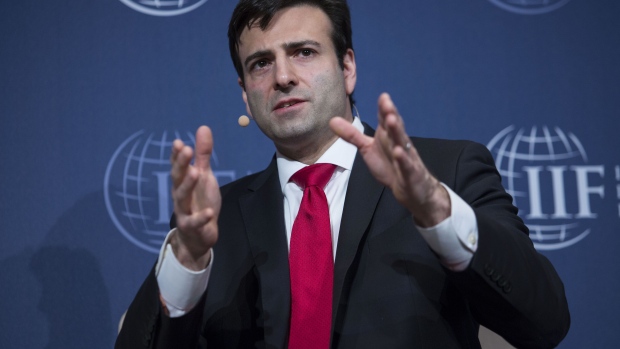Nov 24, 2020
Firms May Be Shut Out of Swaps on Libor Issue, CFTC Chief Warns
, Bloomberg News

(Bloomberg) -- A significant number of asset managers risk being locked out of the interest-rate swaps market early next year unless they sign on to a new protocol designed to smooth the transition away from Libor, warned the chairman of the U.S. Commodity Futures Trading Commission.
With the London interbank offered rate set to be phased out at the end of 2021, market participants are being encouraged to adopt standardized language by January that will convert Libor-linked contracts to an alternative reference rate once the benchmark expires. While about 400 banks, dealers and other groups have already adopted the new framework, roughly 2,400 parties including numerous money managers with swap exposure tied to Libor have yet to do so, CFTC Chairman Heath Tarbert said in a statement Tuesday.
Swaps are used by corporations and investors to hedge their interest-rate risk as well as speculate on movements in markets. There’s about $110 trillion in notional value of dollar-denominated interest-rate swap contracts outstanding, according to data from the Bank for International Settlements. Banks and dealers will likely avoid entering into swap agreements with parties that haven’t adopted the protocol by early next year because they wouldn’t be able to hedge their Libor exposure, Tarbert said.
The protocol, developed by the International Swaps and Derivatives Association, was unveiled last month and has been touted as a key means of preventing a cliff-edge scenario when the benchmark expires at the end of next year.
Most of the world’s largest banks, including Barclays Plc, Credit Suisse Group AG, Goldman Sachs Group Inc. and JPMorgan Chase & Co. were early adopters.
But “unless both counterparties to a swap have adopted the protocol, that swap cannot fallback to a non-Libor rate,” Tarbert said.
The Alternative Reference Rates Committee, convened by the Federal Reserve to guide the Libor transition in the U.S., has urged firms to comply.
“The ISDA protocol is a perfect example of an area where market participants can solve this problem on their own,” Tom Wipf, vice chairman of institutional securities at Morgan Stanley and chairman of the ARRC, said in an emailed statement. “We don’t need to wait for legislation to solve the problems with derivatives contracts, we can all solve them by adhering to the protocol.”
The U.K. Financial Conduct Authority, which oversees Libor, told firms in July that they face “huge risks” if they don’t sign up.
©2020 Bloomberg L.P.


